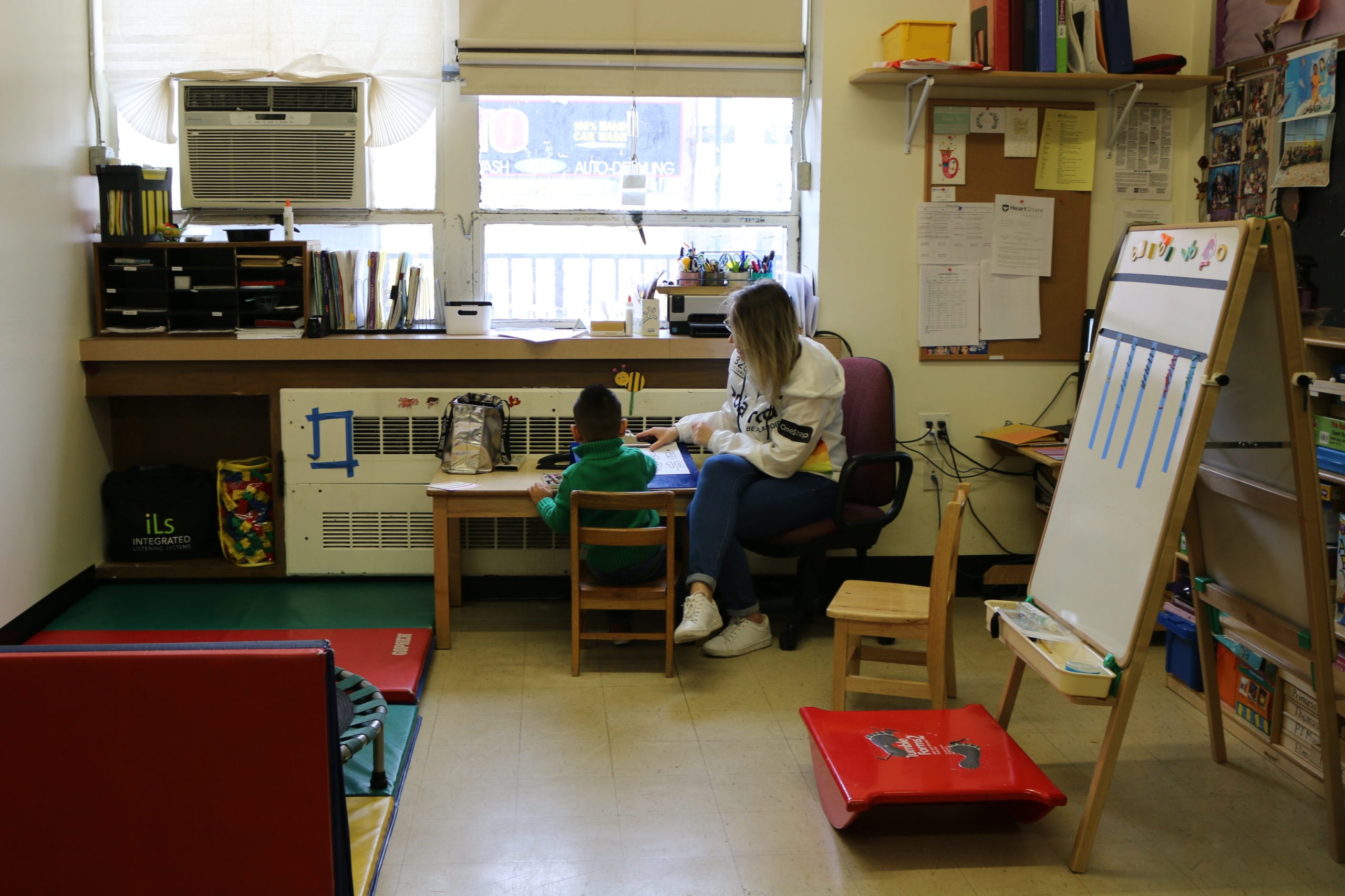As New York City became the global epicenter of the coronavirus pandemic last spring, the number of infants and toddlers referred for evaluations due to possible disabilities plummeted, according to an analysis of city data released Friday.
At the same time, thousands of young children who were already receiving these services stopped getting them.
The analysis focuses on “Early Intervention” services, which are required by federal law, and are designed to ensure that children from birth to age 3 with disabilities or developmental delays get crucial help such as physical, occupational, or speech therapy.
The findings mirror a decline in referrals for special education services among school-age students and offer another grim window into how students with disabilities have struggled during the pandemic.
The decline among toddlers and infants is worrying because securing services early in a child’s life can make a significant difference in their development. Children who do not receive appropriate services early on in their development could result in more intense — and expensive — special education services later on, according to the report.
“Early Intervention exists because the brain is most malleable in the first three years of life,” said Dr. Liz Isakson, the executive director of Docs for Tots, an organization that helps ensure children with delays get connected to services. “I am worried about the infants and toddlers that never entered the system.”
Between last July and September, 15% fewer New York City children — representing about 2,900 infants and toddlers — received Early Intervention services compared with the same period in 2019. Some of that drop is likely explained by a decline in referrals.
Based on trends from previous years, the report indicates that between 3,000 and 6,000 fewer city infants and toddlers were referred for Early Intervention services than usual. In a typical year, about 33,000 city children receive these services. Although the number of children referred for services began to rebound in April and has since returned to pre-pandemic levels, advocates remain concerned about children who were not identified for services in the spring.
“Infants and toddlers cannot afford to wait for critically important Early Intervention services, said Kim Sweet, the executive director of Advocates for Children, the advocacy group that conducted the analysis. “The State and City need to take quick action to ensure children with developmental delays and disabilities get the services they need right away.”
With the closure of day care programs and drop in regular pediatrician appointments, the pandemic interrupted some of the ways children are typically flagged by experts for possible developmental delays and referred to services. Parents may have also been less reluctant to seek out help, possibly overwhelmed by the pandemic and suffering from the death of relatives, job loss, or supervising remote learning.
Even among families who were already receiving services, participating remotely appeared to be a significant challenge. Some families may not have found teletherapy services useful for their babies and toddlers, or they may have been logistically untenable for working parents. (While in-person services are now approved, families have been encouraged to participate remotely, according to the report.)
Technology access is also a barrier. Although the city provided about 450,000 iPads to school-age students who lacked technology access, city officials did not provide devices to children in Early Intervention, the report said. Some families who lacked a computer or tablet attempted to use cell phones, though some families found that “ineffective” for their infants and toddlers. City officials said they are working with the state, which also plays a role in overseeing Early Intervention, to “develop a mechanism to loan devices to families.”
Isakson worries the lack of technology access may further exacerbate existing inequities in the Early Intervention system. People who live in low-income areas of the city are less likely to be referred for evaluations, or receive services after an evaluation.
“The tech divide follows right along that,” Isakson said. “If you think about equity and school readiness and long-term effects of children arriving in kindergarten, that’s pretty substantial that devices were not provided.”
A city survey conducted between April and mid June found that nearly a quarter of parents receiving Early Intervention services were not receiving any of their services when they were contacted.
“Very early in the pandemic, we shifted all home-based Early Intervention services to a teletherapy approach in order to reduce the community transmission of COVID-19,” wrote Julia Morrill, a spokesperson for the city’s Department of Health and Mental Hygiene, which administers the Early Intervention Program. “We have done our best to work with families in order to get children the services they need during this incredibly difficult time.”
The report includes a series of recommendations, including launching an outreach campaign to ensure children don’t fall through the cracks, providing technology to families who receive Early Intervention services, and providing “make-up” services to students who missed out. It also calls for increased funding for providers, especially as there may be an influx of students who are ultimately referred for services with greater needs that have gone unaddressed due to the pandemic.






